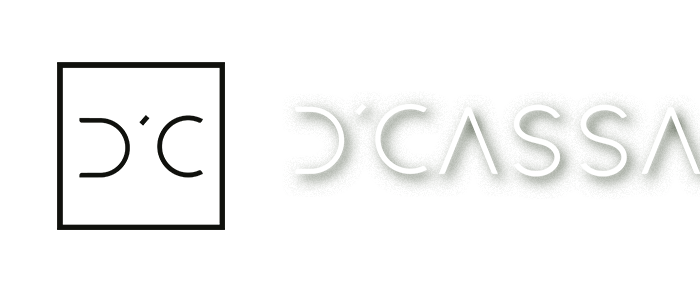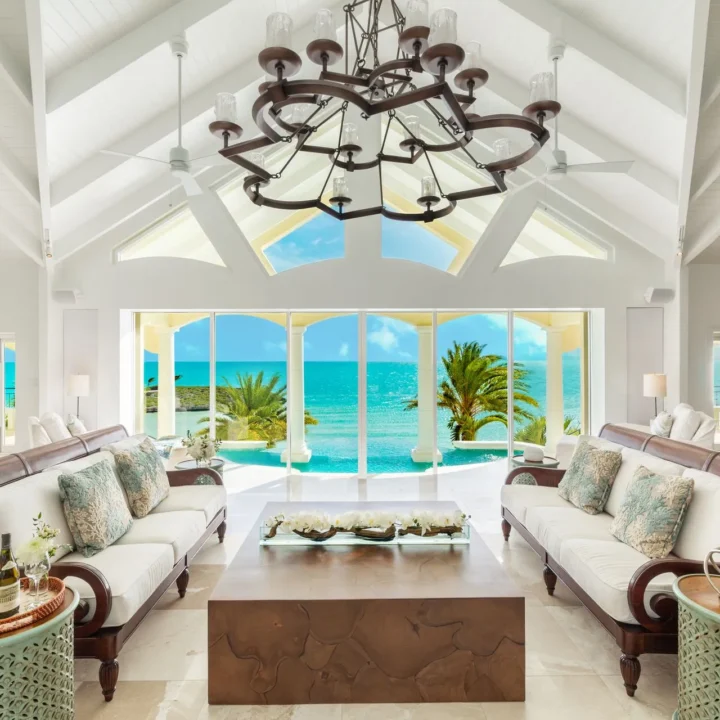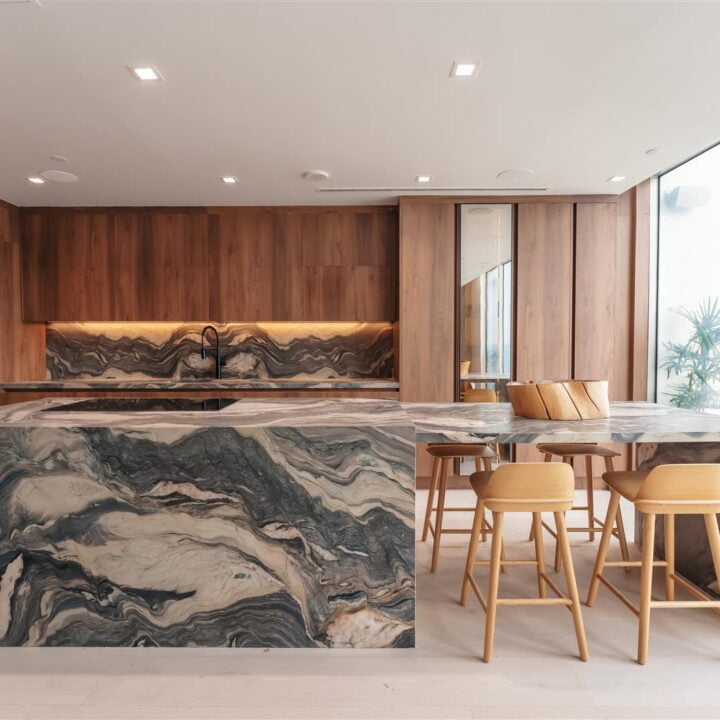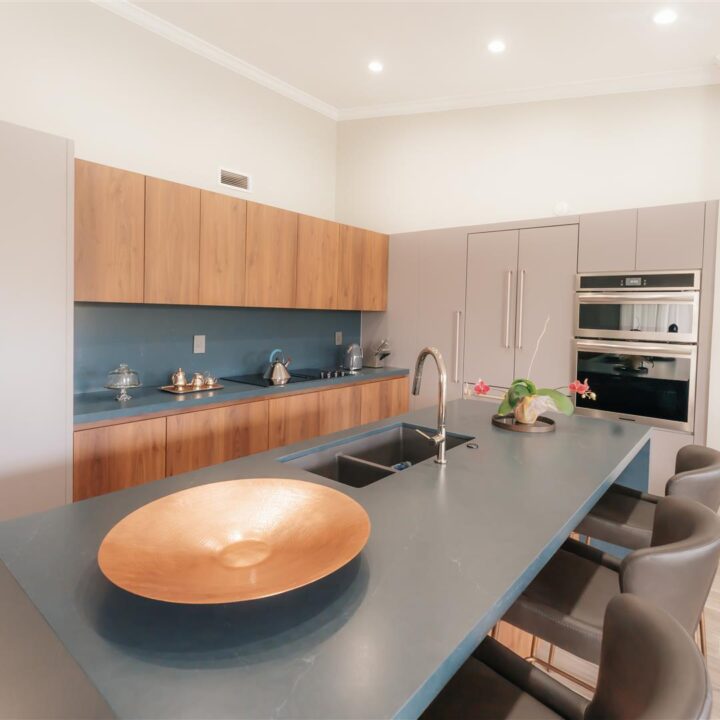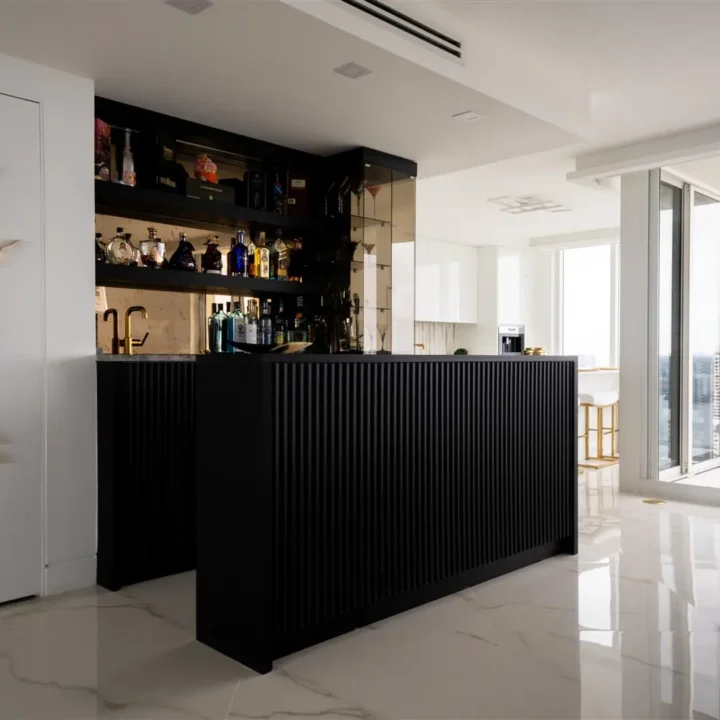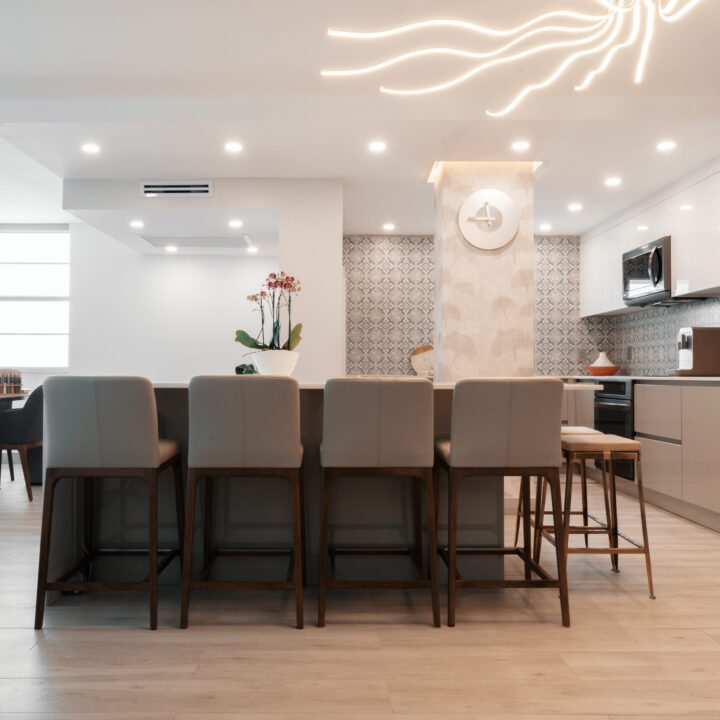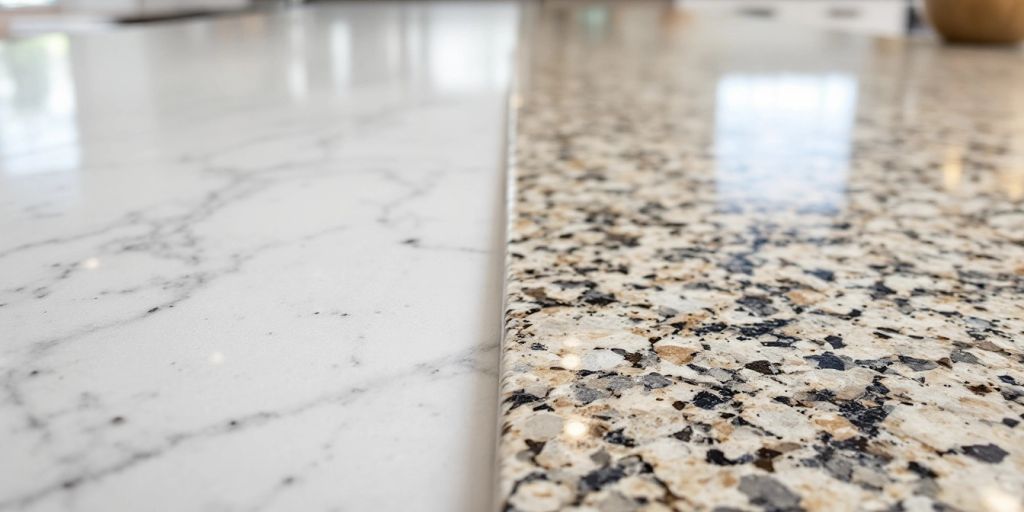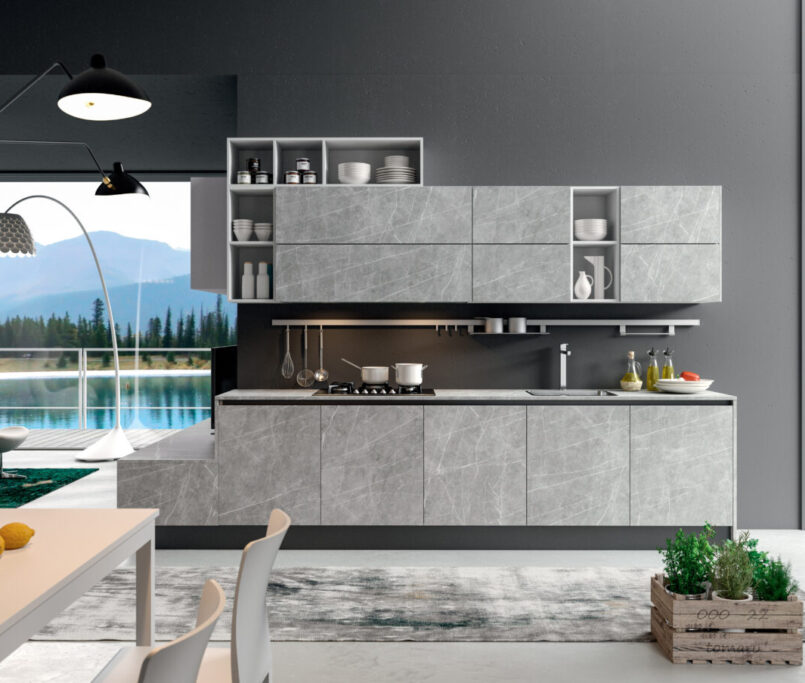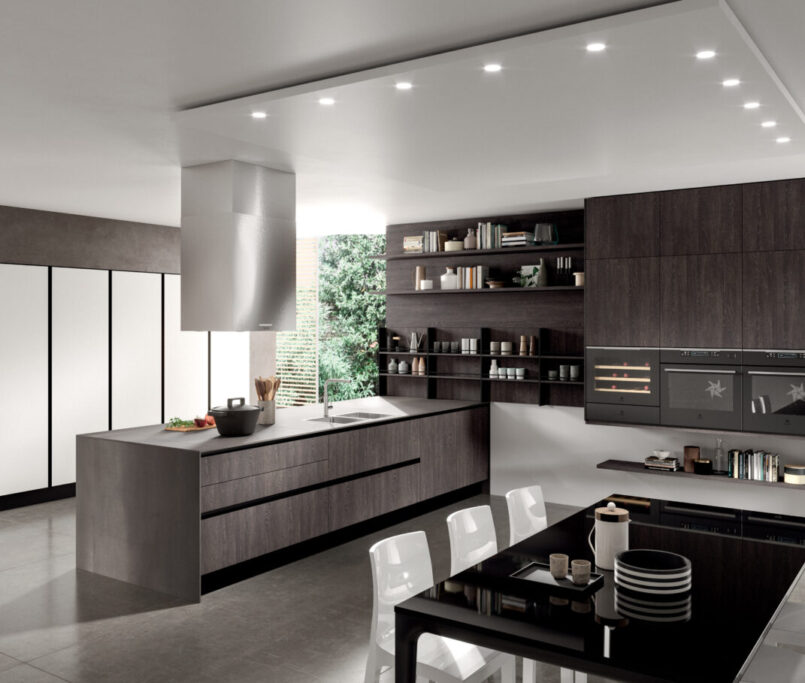When it comes to choosing the right countertop for your kitchen, the debate between quartz and granite is a hot topic. Both materials have their own unique advantages and styles, making them popular choices among homeowners. Understanding the differences between these two options can help you make the best choice for your space and lifestyle.
Key Takeaways
- Quartz offers a wide range of colors and patterns, making it a versatile choice for modern kitchens.
- Granite is a natural stone with unique designs, giving each slab its own distinct character.
- Quartz is low maintenance and doesn’t require sealing, unlike granite, which needs regular upkeep.
- Both materials are durable, but quartz is less likely to crack or chip compared to granite.
- Your choice between quartz and granite should reflect your personal style, budget, and how much maintenance you’re willing to do.
Understanding the Basics of Quartz and Granite
What is Quartz?
Quartz is an engineered stone made from natural quartz crystals mixed with resin and pigments. This combination gives it a smooth and uniform appearance. It comes in a wide variety of colors and patterns, making it a popular choice for modern kitchens.
What is Granite?
Granite is a natural igneous rock formed from cooled magma. It is known for its unique patterns and colors, which vary from slab to slab. Each piece of granite is distinct, offering a one-of-a-kind look for your kitchen.
Key Differences Between Quartz and Granite
Here are some important differences between quartz and granite:
- Appearance: Quartz has a consistent look, while granite features natural variations.
- Durability: Quartz is less likely to crack compared to granite, which can have natural flaws.
- Maintenance: Quartz is low-maintenance and does not require sealing, unlike granite, which needs regular upkeep.
| Feature | Quartz | Granite |
|---|---|---|
| Durability | ⭐⭐⭐⭐⭐ | ⭐⭐⭐ |
| Aesthetic Appeal | ⭐⭐⭐⭐⭐ | ⭐⭐ |
| Maintenance | ⭐⭐⭐⭐⭐ | ⭐⭐⭐ |
| Customization | ⭐⭐⭐⭐⭐ | ⭐⭐⭐ |
| Affordability | ⭐⭐⭐⭐ | ⭐⭐⭐⭐⭐ |
Quartz is often seen as the modern choice for kitchens, offering a blend of beauty and practicality that suits various styles, including European kitchen cabinets.
Aesthetic Appeal and Design Options
Color Variations in Quartz
Quartz countertops are known for their wide range of colors. They can be made to look like natural stone or come in vibrant, modern shades. Here are some popular color options:
- White and cream for a clean look
- Bold colors like red or blue for a statement
- Earthy tones for a natural feel
Color Variations in Granite
Granite offers a more natural aesthetic with unique patterns. Each slab is different, showcasing:
- Darker shades like black and deep green
- Light colors with speckles and swirls
- Earthy tones that blend well with traditional designs
Pattern and Texture Differences
When it comes to patterns and textures, quartz and granite differ significantly:
- Quartz: Engineered for uniformity, it has a smooth surface and consistent patterns.
- Granite: Features natural variations, with swirls and speckles that add character.
| Feature | Quartz | Granite |
|---|---|---|
| Color Variety | Extensive | Limited |
| Pattern | Uniform | Unique |
| Texture | Smooth | Natural |
Choosing the right countertop can greatly enhance your kitchen’s overall look. Quartz offers modern elegance, while granite brings natural beauty to your space.
Durability and Maintenance
Scratch Resistance
Both quartz and granite are known for their durability, but they handle scratches differently. Quartz is engineered to be highly resistant to scratches, making it a great choice for busy kitchens. In contrast, granite, while also durable, can chip or scratch if heavy objects are dropped on it. Here’s a quick comparison:
| Material | Scratch Resistance |
|---|---|
| Quartz | High |
| Granite | Moderate |
Stain Resistance
When it comes to stains, quartz has the upper hand. Its non-porous surface means it doesn’t need sealing and is less likely to absorb spills. Granite, however, is porous and requires regular sealing to maintain its stain resistance. Here’s a quick look:
- Quartz:
- Granite:
Cleaning and Maintenance Tips
To keep your countertops looking their best, follow these simple tips:
- For Quartz: Wipe with a damp cloth and mild soap.
- For Granite: Clean with a gentle cleaner and seal regularly.
- Avoid using harsh chemicals on both surfaces to prevent damage.
Maintaining your countertops is essential for their longevity. Regular care can help you enjoy their beauty for years to come.
In summary, while both materials are durable, quartz is easier to maintain due to its non-porous nature, while granite requires more care to keep it looking great. Choose based on your lifestyle and maintenance preferences!
Cost Comparison and Value
Initial Cost of Quartz Countertops
Quartz countertops typically range from $60 to $150 per square foot. This price can vary based on factors like brand, color, and thickness. While the initial cost is higher than granite, quartz often requires less maintenance, which can save money over time.
Initial Cost of Granite Countertops
Granite countertops generally cost between $40 and $100 per square foot. The price can fluctuate based on the slab’s thickness and color. Although granite is less expensive upfront, it requires regular sealing, which can add to the overall cost.
Long-Term Value and Investment
When considering long-term value, both materials have their pros and cons:
- Quartz:
- Low maintenance costs due to its non-porous surface.
- Durable and resistant to scratches and stains.
- Granite:
- Unique natural beauty that can enhance home value.
- Requires regular sealing, which can increase maintenance costs.
| Material | Initial Cost (per sq. ft.) | Maintenance Cost | Longevity |
|---|---|---|---|
| Quartz | $60 – $150 | Low | 20+ years |
| Granite | $40 – $100 | Moderate | 15+ years |
In summary, while quartz may have a higher initial cost, its durability and low maintenance can make it a better long-term investment. Granite, on the other hand, offers a unique aesthetic but may require more upkeep over time.
Environmental Impact and Sustainability

Eco-Friendly Aspects of Quartz
Quartz countertops are often made with recycled materials, making them a more sustainable choice. This means that they can help reduce waste and lower the demand for new resources. Additionally, quartz is engineered, which allows for more control over the materials used in production.
Eco-Friendly Aspects of Granite
Granite is a natural stone that is mined from the earth. While it is a durable option, the environmental impact of stone countertop production can be significant. The extraction process can lead to habitat disruption and soil erosion. However, granite is biodegradable and does not release harmful chemicals into the environment.
Sustainable Sourcing and Manufacturing
Both materials have their pros and cons when it comes to sustainability. Here are some key points to consider:
- Quartz: Often includes recycled content and has a lower carbon footprint during production.
- Granite: Mined from natural quarries, which can minimize environmental impact compared to synthetic materials.
- Manufacturing: Quartz production can be more energy-intensive, while granite requires careful quarrying practices to reduce environmental damage.
Choosing the right countertop material not only affects your kitchen’s look but also its impact on the planet. Consider sustainability when making your choice!
Installation Process and Considerations
Professional Installation vs. DIY
When it comes to installing your countertops, you have two main options: professional installation or doing it yourself (DIY). Here are some points to consider:
- Professional Installation: This is often recommended for granite due to its weight and fragility. Experts ensure a perfect fit and finish.
- DIY Installation: If you choose quartz, some homeowners opt for DIY. However, it requires careful planning and the right tools.
- Cost Considerations: Hiring professionals can be more expensive, but it may save you time and potential mistakes.
Time Required for Installation
The time it takes to install countertops can vary based on several factors:
- Material Type: Granite usually takes longer due to its weight and the need for precise cutting.
- Preparation: If your kitchen needs modifications, this can add time.
- Installation Process: On average, professional installations can take 1-3 days, while DIY might take longer depending on your skill level.
Common Installation Challenges
Installing countertops can come with its own set of challenges. Here are a few to keep in mind:
- Weight of Materials: Both granite and quartz are heavy, requiring proper support.
- Seams and Joints: Ensuring seams are tight and well-finished can be tricky.
- Cutting and Fitting: Precise measurements are crucial to avoid gaps.
Remember, the installation process is just as important as the material you choose. A well-installed countertop can enhance the beauty and functionality of your kitchen for years to come!
Suitability for Different Kitchen Styles

Modern and Contemporary Kitchens
When it comes to modern kitchens, quartz is often the top choice. Its sleek and uniform appearance fits perfectly with contemporary designs. Here are some reasons why quartz shines in modern settings:
- Wide Color Range: Quartz comes in many colors, allowing for creative combinations.
- Smooth Surface: Its non-porous nature makes it easy to clean and maintain.
- Durability: Quartz is resistant to scratches and stains, ideal for busy kitchens.
Traditional and Classic Kitchens
Granite, with its natural beauty, is a great fit for traditional kitchens. Here’s why:
- Timeless Appeal: The unique patterns and textures of granite add character.
- Warmth: Its natural stone look brings warmth to classic designs.
- Variety: Available in various shades, granite can complement many styles.
Eclectic and Unique Kitchen Designs
For those with eclectic styles, both materials can work well. Consider these points:
- Mix and Match: Use quartz for countertops and granite for backsplashes for a unique look.
- Personal Touch: Both materials can be customized to reflect personal style.
- Balance: Combining the sleekness of quartz with the ruggedness of granite can create a balanced aesthetic.
Choosing the right countertop can greatly impact your kitchen’s overall look and feel. Both quartz and granite offer unique benefits that can enhance your space, depending on your style preferences.
When it comes to choosing the right kitchen style, it’s important to find what fits your taste and needs. Whether you prefer a modern look or something more traditional, we have options for everyone. Explore our website to discover how we can help you create the kitchen of your dreams!
Conclusion
Deciding between granite and quartz countertops for your kitchen is a big choice that can change how your space looks and works. Both materials are popular and come with their own set of advantages. Granite is a natural stone that offers unique patterns and a classic feel, while quartz is engineered for a sleek, modern look and is easier to maintain. Your decision should reflect your personal style, budget, and how much care you’re willing to put into your countertops. Whether you prefer the timeless beauty of granite or the contemporary appeal of quartz, either option will enhance your kitchen for years to come.
Frequently Asked Questions
What are the main differences between quartz and granite countertops?
Quartz is man-made and comes in many colors and patterns, while granite is a natural stone with unique designs. Granite may need more care, like sealing, but both are durable options.
Which countertop is easier to maintain, quartz or granite?
Quartz is easier to maintain because it doesn’t need sealing and is non-porous. You can simply wipe it clean with soap and water. Granite requires regular sealing to keep it stain-resistant.
Are quartz countertops more expensive than granite?
Yes, quartz countertops usually cost more than granite. However, the long-term savings on maintenance can make quartz a better investment.
Can I use quartz countertops outdoors?
It’s not recommended to use quartz outdoors because it can fade in sunlight. Granite can be used outside since it’s more durable against weather.
Do quartz countertops look different from granite?
Yes, quartz countertops have a more uniform look because they are manufactured. Granite has natural variations and unique patterns.
Which countertop is better for cooking?
Granite is often preferred for cooking because it can handle high heat without damage. Quartz can be damaged by extreme heat, so it’s best to use hot pads.
